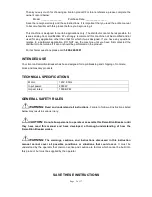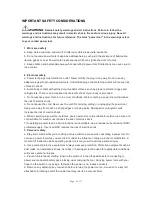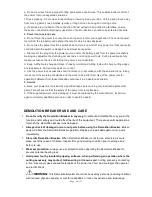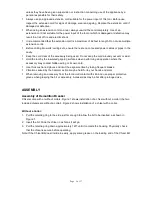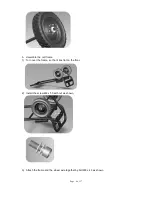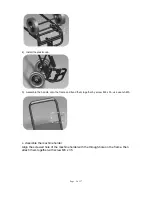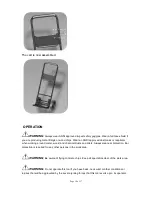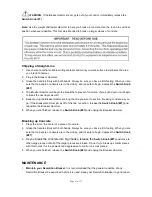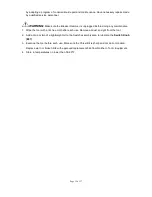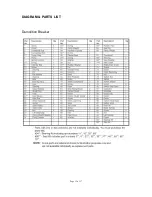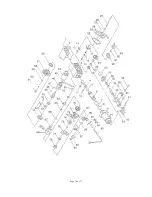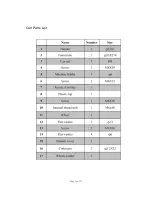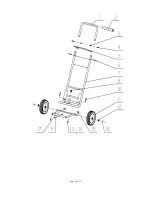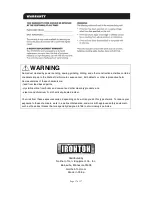
Page of 17
4
e. Do not overreach. Keep proper footing and balance at all times. This enables better control of
the power tool in unexpected situations.
f. Dress properly. Do not wear loose clothing or jewelry. Keep your hair, clothing and gloves away
from moving parts. Loose clothes, jewelry or long hair can be caught in moving parts.
g. If devices are provided for the connection of dust extraction and collection facilities, ensure
these are connected and properly used. Use of dust collection can reduce dust-related hazards.
4. Power tool use and care
a. Do not force the power tool. Use the correct power tool for your application. The correct power
tool will do the job better and safer at the rate for which it was designed.
b. Do not use the power tool if the switch does not turn it on and off. Any power tool that cannot be
controlled with the switch is dangerous and must be repaired.
c. Disconnect the plug from the power source and/or the battery pack from the power tool before
making any adjustments, changing accessories, or storing power tools. Such preventive safety
measures reduce the risk of starting the power tool accidentally.
d. Keep cutting tools sharp and clean. Properly maintained cutting tools with sharp cutting edges
are less likely to bind and are easier to control.
e. Use the power tool, accessories and tool bits etc. in accordance with these instructions, taking
into account the working conditions and the work to be performed. Use of the power tool for
operations different from those intended could result in a hazardous situation.
5. Service
a. Have your power tool serviced by a qualified repair person using only identical replacement
parts. This will ensure that the safety of the power tool is maintained.
b. If the supplied power cord is damaged, it must be replaced by the manufacturer, its service
agent or similarly qualified persons in order to avoid a hazard.
DEMOLITION BREAKER USE AND CARE
•
Do not modify the Demolition Breaker in any way.
Unauthorized modification may impair the
function and/or safety and could affect the life of the equipment. There are specific applications
for which the Demolition Breaker was designed.
•
Always check of damaged or worn out parts before using the Demolition Breaker.
Broken
parts will affect the Demolition Breaker operation. Replace or repair damaged or worn parts
immediately.
•
Store idle Demolition Breaker.
When Demolition Breaker is not in use, store it in a secure
place out of the reach of children. Inspect it for good working condition prior to storage and
before re-use.
•
Wear ear protection.
Always use ear protection when operating the Demolition Breaker to
prevent potential hearing loss.
•
Hold power tool by insulated gripping surfaces, when performing an operation where the
cutting accessory may contact hidden wiring or its own cord.
Cutting accessory contacting
a “live” wire may make exposed metal parts of the power tool “live” and could give the operator
an electric shock.
WARNING:
This Demolition Breaker should not be used by persons (including children)
with reduced physical, sensory or mental capabilities, or lack of experience and knowledge,
Summary of Contents for 45998
Page 13: ...Page of 17 13 DIAGRAM PARTS LIST Demolition Breaker...
Page 14: ...Page of 17 14...
Page 15: ...Page of 17 15 Cart Parts List...
Page 16: ...Page of 17 16...


